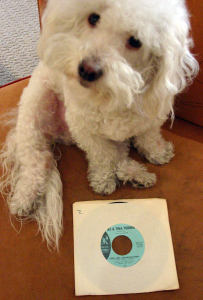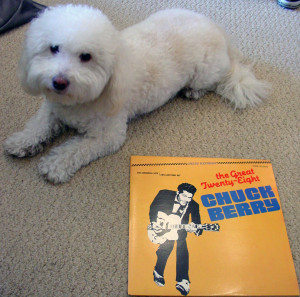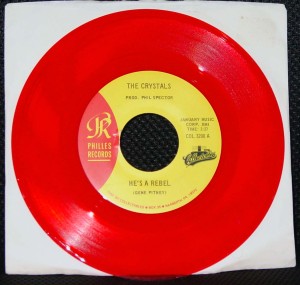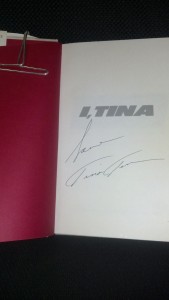
By 1966, the recording duo Ike & Tina Turner and the record producer Phil Spector could use a turnaround in their luck.
Ike & Tina Turner’s first hit song was 1960’s “A Fool in Love.” Two more top forty pop and four more r&b top ten hits followed over the next couple of years.
Phil Spector’s first hit as a producer was The Teddy Bears’ “To Know Him Is to Love Him,” a #1 pop single in 1958. Over the next seven years Phil Spector produced twenty-five top 40 pop hits, including such classics as The Ronettes’ “Be My Baby,” The Righteous Brothers’ “You’ve Lost That Lovin’ Feeling” and “Unchained Melody,” The Crystals’ “He’s a Rebel” and “Da Doo Ron Ron,” and Curtis Lee’s “Pretty Little Angel Eyes.”
Fast forward to late 1965. Ike & Tina Turner’s last top 40 pop hit was “Poor Fool,” which peaked at #38 in early 1962. It went top ten on the r&b chart, as did its follow-up, “Tra La La La,” but successive singles failed to do as well.
Despite scoring four top ten singles on Spector’s Philles Records, The Righteous Brothers sued the producer/record company head to get off the label, saying their contract was unenforceable. It was announced in early 1966 that the duo signed with another label. Their first single for that label, Verve, was a #1 hit – “(You’re My) Soul and Inspiration.” Spector lost his star attraction, and the other acts in his stable had lost luster. The Ronettes’ most recent top 40 hit was 1964’s “Walking in the Rain.” The Crystals’ most recent top 40 hit was 1963’s “Then He Kissed Me.”
In 1965 the Ike & Tina Turner Revue performed The Galaxy in Los Angeles. In the audience was Phil Spector. He loved their act and booked them to appear on The Big TNT Show, a televised concert for which he was the associate producer and musical director. Also appearing on the program were The Byrds, Ray Charles, Bo Diddley, The Lovin’ Spoonful, Donovan, Joan Baez, Petula Clark, and Roger Miller.
Spector was taken by Tina’s performance. “I said, God, if I could make a number-one record with her she could go on Ed Sullivan, she could go to Las Vegas; she could break the color barrier.” At the time, Ike & Tina were singed to Loma Records, a division of Warner Brothers Records. None of their releases hit the pop charts. Spector negotiated a release from their Loma contract. Spector wanted Tina, not Ike, so he paid Loma $20,000 to buy out the duo’s contract, on the condition that Ike stay away from the studio while Tina recorded. Ike accepted this offer, with the stipulation that the resulting record still be credited to Ike & Tina Turner.
To come up with a suitable song, Spector turned to the husband and wife songwriting team of Jeff Barry and Ellie Greenwich, who, with Spector, wrote “Be My Baby” and “Da Doo Ron Ron” and also wrote “Leader of the Pack” (with Shadow Morton) and “Do Wah Diddy Diddy.” CORRECTION: former husband and wife songwriting team – Barry and Greenfield divorced in December 1965, just a few weeks before Spector asked them to write a song for Tina.
Though freshly-divorced, they both came to the table, each with a different unfinished song. The combination of the three songs resulted in “River Deep – Mountain High,” with the melody of the verses coming from Greenwich, the melody of the chorus coming from Spector, and most of the lyrics coming from Barry.
The first of five recording sessions for the single was in February 1966. Hanging out in the control room were a couple of folks you may have heard of – Mick Jagger and Brian Wilson. To achieve his vision Spector used 21 background vocalists and 21 musicians, including Glen Campbell, Leon Russell and Hal Blaine. The completed record cost around $22,000 to make. Said Bob Krasnow, the head of Loma Records, “In those days, you could make five albums for twenty thousand dollars. And this was just a single – one side of a single.”
After years with Ike Turner, Tina must have been relieved to be able to go into the studio without Ike and with Phil Spector, a man who treated women with respect – scratch that thought. In her autobiography, I, Tina, she recounts a recording session with Spector. “That intro – ‘When I was a little girl…’ – I must have sung that five hundred thousand times, and I don’t know if I ever got it just the way he wanted it. I would sing it, and he would say, ‘That’s very close, very close. We’ll try it again.’ I don’t remember him saying, ‘Got it.’ Pretty soon, I was drenched with sweat. I had to take off my shirt and stand there in my bra to sing, that’s how hard I was working on that song.”
A River Deep – Mountain High album, with a cover photo taken by a broke Hollywood actor named Dennis Hopper, wouldn’t be released until 1969. However, the “River Deep – Mountain High” single came out in the United States on May 14, 1966. It entered the Hot 100 at #98. A week later it was #94. One week after that #93. The next week it rose to #88.
And that was it. The record that was to be the triumphant return of Ike & Tina Turner and Phi Spector stayed on the chart for only four weeks. Looking back, Tina concluded “It was too black for the pop stations, and too pop for the black stations.” Ike agreed.
After the single’s failure, Spector became a semi-recluse. It would be three years before another Phil Spector’s production was on the Hot 100.
In the United Kingdom, however, it was a different story. “River Deep – Mountain High” peaked at #3 there. George Harrison called it “a perfect record from start to finish – you couldn’t improve on it.” Harrison would later have Spector co-produce his All Things Must Pass album, which included the classic “My Sweet Lord.”
In praising Tina, Mick Jagger said “’River Deep-Mountain High’ was an excellent record because she had the voice to get out in front of Phil Spector’s so-called wall of sound.” The Rolling Stones invited Ike & Tina to open for them on their tour that began in the autumn of 1966.
In 1999, “River Deep – Mountain High” was inducted in the Grammy Hall of Fame. Rolling Stone magazine put it at #33 on its list of the 500 Greatest Songs of All Time.
Tina Turner turns 75 today. Here are twenty career highlights, kicking off with the classic “River Deep – Mountain High.”
Read more about Tina Turner here.
Click here to like Tunes du Jour on Facebook!


